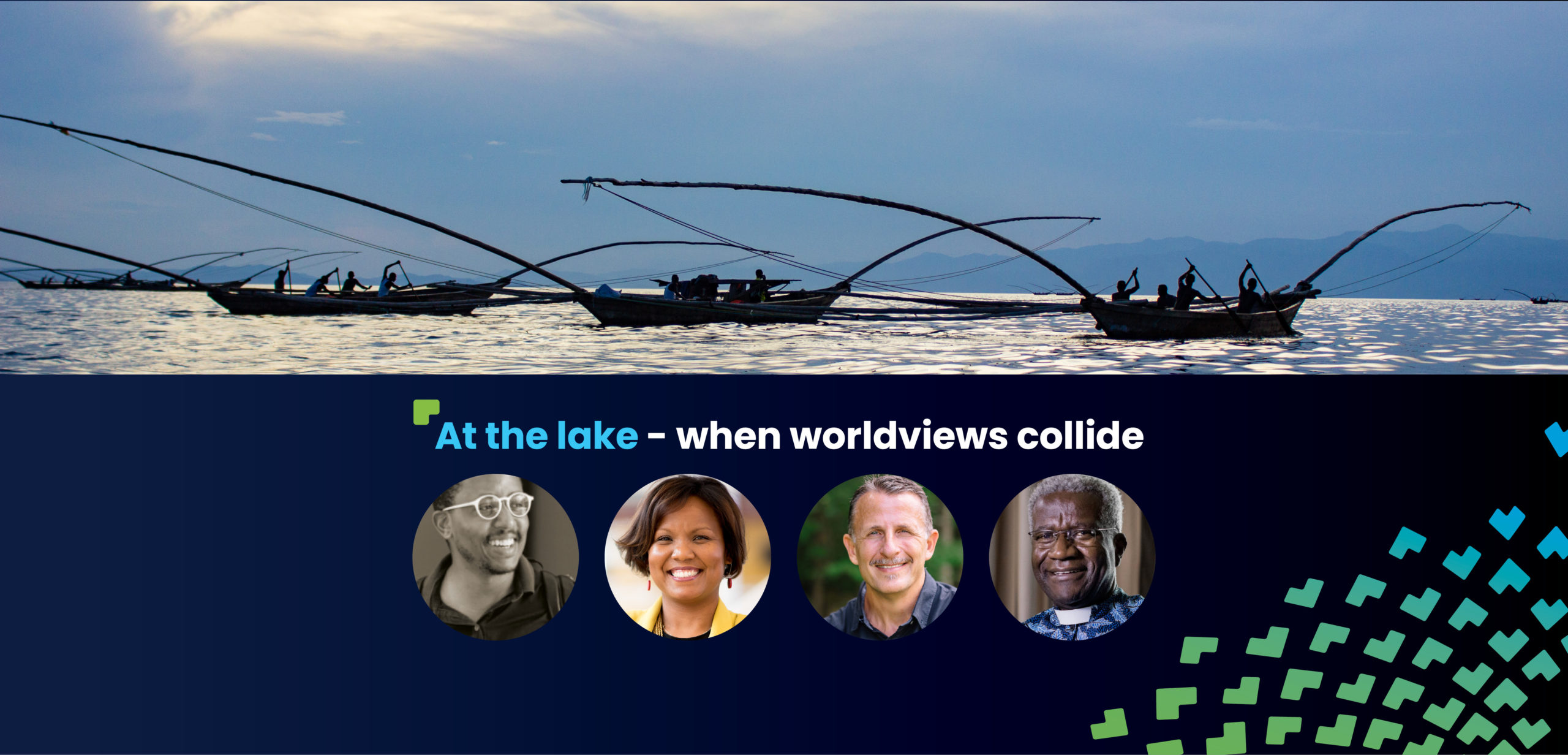Everybody has a worldview – we may just not know it. Our worldview shapes how we do things and what we value most in this world. But what happens when differing worldviews collide? How can the gospel help us navigate these differences and build bridges of understanding across cultural and spiritual divides?
This was the topic on discussion on Thursday 10 March during Ziwani’s first online ‘At the Lake’ discussion entitled Where worldviews clash in the business environment – and how the Gospel reconciles.
Led by a panel of 4 seasoned entrepreneurs and leaders, the conversation facilitated a range of rich perspectives rooted in biblical understanding and lived experience across sectors and African cultures. Here’s a bird’s eye view of some ‘big ideas’ to big questions that host Rori Tshabalala asked on the day.
When worldviews collide – and how the Gospel reconciles
‘What would you define as a worldview and how is it different to culture or philosophy or even religion – or are all these just synonyms of one another?
‘’In her book Total Truth,’ said Dr Tongoi, ‘Nancy Pearsey said that every culture has a cultural story of ultimate origins (where do we come from?), the fall (what’s wrong with our world?) and redemption (how do we fix it?) Your answers to those questions inform your culture and largely, your worldview. Everybody has a worldview, but not everybody’s aware they have a worldview. You’re only aware of it when you go into a different culture and it’s challenged.’
‘Is the business environment an appropriate place for people to bring their worldviews into?’
‘We carry our worldviews everywhere we go’, said Adelaide Cupido, ‘whether we speak about it or not. The key is in humanising the workplace, so that people can come as ‘their whole selves’. We’re more often expected to come with our heads to work and park our hearts at the door. This separation is artificial and will inevitably trap creativity and impact performance. When we isolate the head from the heart we don’t connect with God or our creativity.
The challenge, she said, was to create a ‘safe and brave space’ for robust dialogue, where different viewpoints can be expressed without fear of judgment. Irreconcilable conflict arises, Adelaide pointed out, when we don’t prioritise these discussions and allocate time and space to hear one another’s stories and perspectives. Silence is more dangerous than disagreement – ‘when we don’t talk about our differences, we create the fertile ground for conflict to take place,’ she added.
‘Is it necessarily a bad thing for worldviews to clash in the marketplace?’
‘Clashing is not necessarily wrong,’ replied Dr Tongoi. ‘Group think is in fact worse because it creates redundancy. Our purpose as Christians in the marketplace is not to avoid clashes but to find a common language where we can discuss our differences.’ Through scripture, God gives us a universal moral framework that connects our humanity across cultures and provides that common language we seek.
Take bribery as an example, Dr Tongoi continued. In the African worldview this commonplace practice is regarded as not only acceptable but honouring – the ultimate act of sacrifice. Within the biblical worldview, however, bribery implies a fundamental lack of trust in God as your ultimate source and provider. ‘But when we unpack the Proverbs that speak of there being ‘one road that leads to life, and the other to death and foolishness’…then the conversation becomes easy. If we pay this bribe, what will be the consequences of our actions? Will this act lead to life, growth and flourishing – or will it lead to death and diminishing? Does it add life, or is it just a quick fix solution?
The answer to this question is more often the latter: a quick fix solution with diminishing returns. Because God hardwired us for hope and flourishing, he added, most people will forego the bribe and choose the way of trust– not necessarily because they have subscribed to your faith, but because they see the reasoning in your biblical worldview. In this way, your faith has built a bridge of understanding towards a more redemptive, life-giving societal solution.
In the business environment what needs to change for us to live out our Christian based worldview in a manner that is inspirational and not coercive?
In John’s gospel Jesus incarnated His words – before He preached something, He demonstrated it, Dr Tongoi noted. He raised Lazarus and said that ‘I’m the resurrection’, He fed the 5000 and said, ‘I’m the bread of life’, He gave the woman at the well water and said, ‘I am the living water.’ ‘We have turned that order around – we start preaching before doing,’ he said. ‘But we are called in the marketplace to live out the message firstly, and explain it as people watch our lives.’
Rodger Schmidt added to this idea – noting that inspirational leadership is not automatic but requires a willingness to unlearn and remain humble. ‘I often tell people, I came to Africa to save Africa, but God sent me to Africa to save. When I came from America to Mozambique over 20 years ago, I came with power and all the answers. I was not quick to hear and slow to speak, I was not slow to anger. I realised over the years how much I had to learn from those around me.I’ve come to appreciate the reciprocity of knowledge in our diversity of cultures and worldviews. I’m grateful for my African family and for what they have taught me, and for how they continue to hold me accountable for truth.’
To watch the event in full, click here.
To stay informed on future ‘At the Lake’ events, follow ziwani_community on Instagram or visit www.ziwani.com.
All rights reserved. Copyright 2018 Mergon Group.
